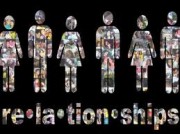 How much does YOUR behavior affect the outcome of your relationships?
How much does YOUR behavior affect the outcome of your relationships?
A team of researchers led by Robert Rosenthal went into schools and administered intelligence tests to the students. They then told the teachers which students –we’ll say Sally, Sam and Sarah-had been identified as the ones with the greatest IQ. They asked the teachers not to mention the results to the students, and not to spend any more or less time with them. At the end of the year they were tested again, and indeed, Sam, Sally and Sarah posted off the charts for intellectual ability.
Now, the truth is when Sam, Sally and Sarah were tested in the beginning, they were absolutely ordinary. The researchers had randomly picked their names and then lied to the teachers about their ability. But, after the experiment, they had in fact turned into superstars.
So, what caused the ordinary students to become extraordinary?
The teachers changed their attitudes towards these students. Not only did they spend more time with these children, they were also more enthusiastic about teaching them, unintentionally showing more warmth toward them. These chosen children felt more capable and intelligent and they performed accordingly, just on the weight of the teachers’ expectations of them. This is called the Pygmalion effect.
The expectations we have about our children, co-workers, friends and spouses—whether or not they are voiced—can bring that potential to life. People tend to act as we expect them to act. You do have the power to leverage how people will behave.
What if we believed we married a capable, loveable, emotionally-complex human who, despite his/her flaws, has great value?
What if we believed we married an inconsiderate, slob?
Would we treat them differently with each different expectation?
Despite the truth, teachers were able to influence Sally, Sam and Sarah to be the smartest kids in the class. So, if we expect our spouse to be a lovable, emotionally available person, could we bring that out in them by treating them like they are that way? Could we deliberately choose our expectations and bring about the behavior we desire in others?
By forcing oneself to set positive expectations for others, the theory goes; one can actually help drive behavior that might not have been achieved all on its own.
1. I expect my marriage to fail. I react by pulling away and act distant towards my spouse. I don’t expect him to care or to try. My belief and behavior causes him to live up to my expectation.
2. I expect my spouse to be loving, gentle and kind? I may create a warmer interpersonal environment, one where I smile and nod more, am more supportive, friendly and encouraging. Therefore my behavior brings about a more loving, gentle and kind response.
3. I expect my boss to be domineering and controlling. I react in ways that reinforce his behavior to be just that. My judgment and negative expectations can become self-fulfilling prophecies. People turn out to be just as unfriendly, self-centered, ignorant, or dishonest as we imagine them to be.
4. A teacher has been forewarned how loud and rowdy Jared is in class. Since she perceived that’s how he would act, that’s exactly how he acted.
“Treat a man as he is and he will remain as he is. Treat a man as he can and should be and he will become as he can and should be.”
Rosenthal’s theory teaches that the best way to keep from receiving the worst from people is to make a conscious effort to expect the best–and to show it in as many ways as possible.



The results of this are not surprising to me. There is no question that a little extra bit in a relationship, especially the kind between a teacher and student, would result in better performance on the students part.
I love this theory, which I’m sure is true. How wonderful to be able to bring out the best in other people just by our attitude to them. I’m going to make a more concentrated effort toward my husband.
It’s amazing how it can affect our relationships! We have so much more power than we realize–we just have to learn to use it in the right way-to get what we want and not what we don’t want! Thanks for replying!